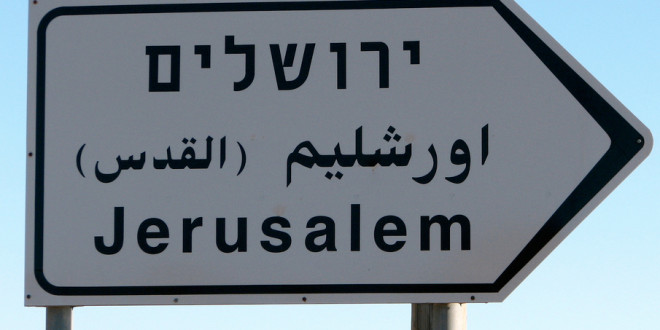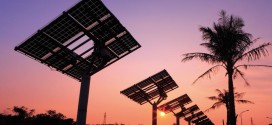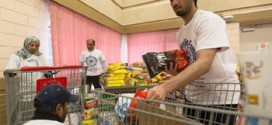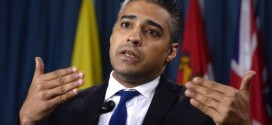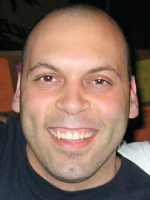I stayed in the Jerusalem Hotel, one block from the largest entrance to the Old City. I ventured through the city’s storied alleys, ancient stairways, and vibrant markets over and over during my few days there. I ate hummus, visited holy sites, and bought souvenirs. When I did make a purchase, I naturally bargained down the price a bit, but not as much as I would have if I have been in any other land. I just didn’t feel right going back and forth too much with those of my people who have remained in the Old City for so long. Also, people pay me to tell jokes. I have a pretty good life. I have no problem giving a small portion of each ticket price to the Palestinian economy.
The Arab residents of the Old City have been present for centuries. Today, the population of the Old City is comprised of about 37,000 people, including 27,000 Muslims, 6,000 Christians, 1,000 Armenians, and 3,000 Jews. That means there’s at least 33,000 Arabs inside of Jerusalem’s old walls. That’s 89%. Basically, what I’m trying to say is that, no matter how hard anyone might try to deny it, Jerusalem’s Old City is an Arab place. It’s been that way for almost 1400 years. 47 years of foreign occupation hasn’t changed that.
Hebrew and Arabic are both official languages of the State of Israel (although there are some initiatives underway in Israel today to revoke the current status of Arabic). As such, all road signs in the country are displayed in Hebrew, Arabic, and, most times, English. Why English? Well, many of the Jewish residents of Israel speak English as a first language. Also, $3 billion a year gets you a lot of perks, unless you’re an American citizen of Palestinian descent trying to visit your homeland, but that’s another story for another day.
However, in the past decade or so, Israel has undertaken a campaign to “renovate” its road signs. Now, it was already true that many highway exit signs in Israel completely ignored the Arab villages that they led to, instead naming Jewish towns that one only reached after passing by these “invisible” Arab locales. But the campaign I am referring to is specifically related to Jerusalem. In Arabic, Jerusalem is “Al-Quds,” which means “The Holy Place.” Until this latest campaign, all road signs indicating a path to Jerusalem denoted the name of the city in English, Arabic, and Hebrew, each in their native pronunciation. In other words, the sign read “Jerusalem (in English), Yerushalayim (in Hebrew), Al-Quds (in Arabic).”
But the signs have changed. Now they display what you see in the photo above. We have Jerusalem in English, Yerushalayim in Hebrew, and then something strange in Arabic. Instead of simply displaying the Arabic “Al-Quds” for Jerusalem, we get the Hebrew transliteration into Arabic. That’s right, “Yerushalayim” is transliterated into Arabic. However, just in case anyone doesn’t know what they’re getting at, they give us “Al-Quds” in parentheses. Parentheses? This might be more offensive than deleting the name altogether. Parentheses denote something superfluous, or insignificant, or sometimes even sarcastic. For instance:
She asked me to come over to her apartment (at 3 am!).
She asked me to come over to her apartment (I ran to my car).
She asked me to come over to her apartment (I wish).
*****
Yerushalayim, (Al-Quds). Yerushalayim, (Al-Quds). Yerushalayim, (Al-Quds).
I kept seeing it. I kept getting angry. I kept feeling defeated.
*****
Then I went back to the Old City.
Sure, I saw a few of those teenagers in military fatigues holding M-16s. But when I saw who they were pointing their guns at, I saw restaurant owners serving falafel, hummus, and shawarma. In other words, I saw Palestinians (and some Israeli soldiers).
Sure, I saw a few Israeli flags flying around here and there. But when I saw what they were flying over, I saw people speaking Arabic, using wildly unnecessary hand gestures, and kissing each other on the cheek an inordinate number of times. In other words, I saw Palestinians (and some Israeli flags).
Sure, I saw some of those European-looking guys peering from their balconies onto the meandering alleys and streets of the Old City. But when I tried to see what they were looking at, I saw shopkeepers selling cardamom and cumin, Arabic artifacts, and embroidered accessories. I saw women pushing their mint and thyme. I saw men marketing their keffiyehs and rosaries. I saw locals. I saw my people. I saw Palestinians (and some Israeli guests).
Jerusalem possesses the flavors of many cultures. She reaches out to all the children of Abraham. Even for a skeptic like me, one cannot deny the gravity of walking in her streets. Her arms are wide open. She is welcoming. I know all of these things. I’ve seen her.
But while I know what she is, I also know what she is not. Jerusalem is not Polish, or Russian, or Hungarian. She is an Arab. If she could speak, she would invite me over for dinner and pile food on my plate, even when I told her I was stuffed. The lemonade she would serve me would be overly sweet and tart. And she would ask me why I wasn’t married yet. And when she would utter anything to me, I would understand her. Because while Jerusalem can speak to anyone, her favorite language is Arabic. And lucky for me, she has a Palestinian accent.
While I was strolling through the markets of Jerusalem, a nice leather bag caught my eye. Now, I’m usually pretty worried that I give off a pretty American vibe whenever I walk around in Palestine. But as I was bargaining my way to a purchase, the shopkeeper told me he would give me his rock-bottom price. After all, as he said, I am “ibnil balad.” I am “a son of the city.” Maybe I got the best price, maybe I didn’t. I didn’t really care. At that point, I was jubilant that he knew that, like him, I belonged there.
Next time I visit Jerusalem, I am going to try to find that guy again. I need to ask him what it is about me that let him know that I was her son. I really need to know what that thing is, so that I never, ever change it.
 العربي الديمقراطي The Latest From The Arab World
العربي الديمقراطي The Latest From The Arab World


